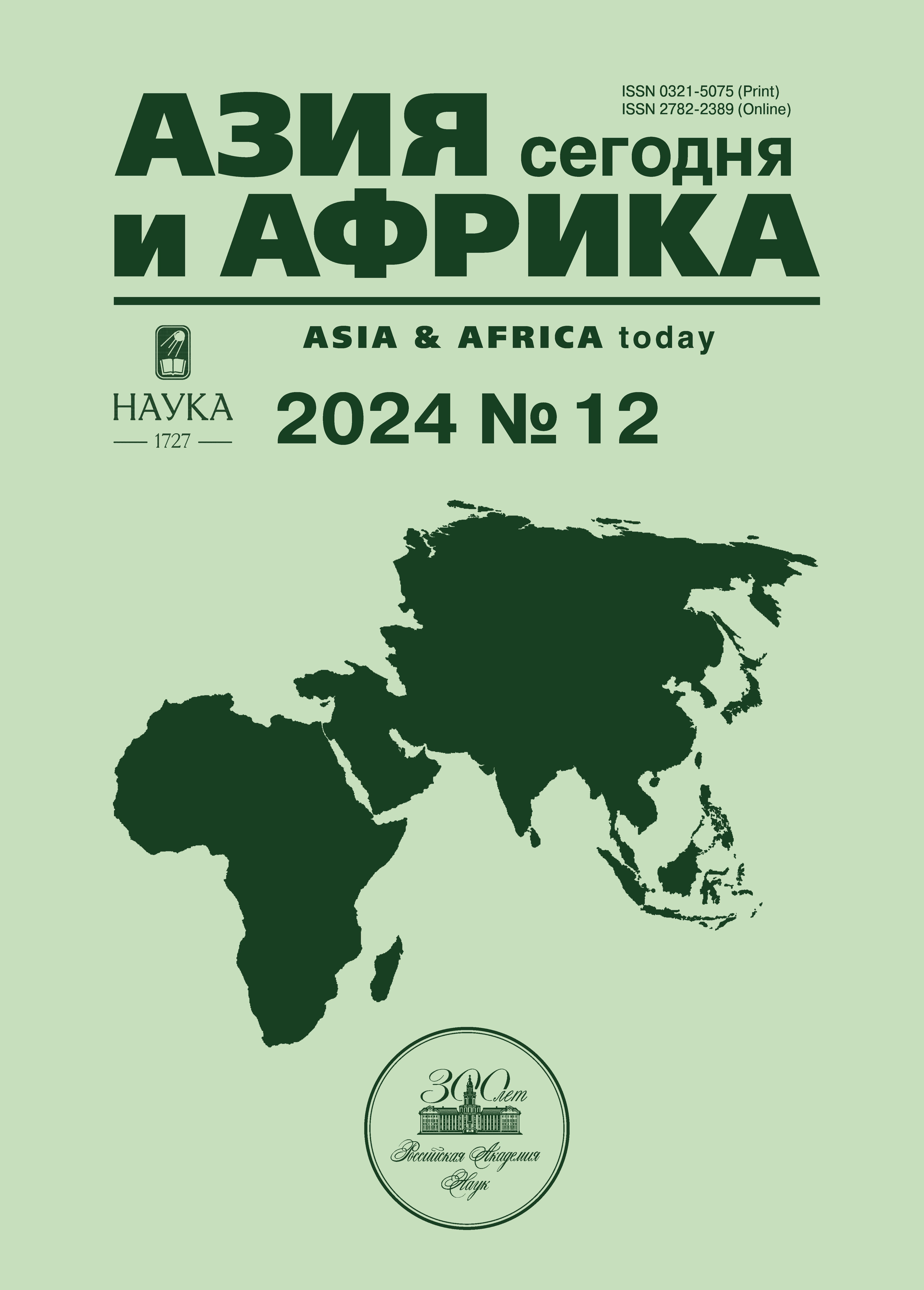Nº 12 (2024)
- Ano: 2024
- Artigos: 12
- URL: https://jdigitaldiagnostics.com/0321-5075/issue/view/10333
Edição completa
Politics, economics
Institutu Afriki RAN – 65 let
 5-6
5-6


On the Problem of Access to Clean Water in Africa
Resumo
 65-72
65-72


Water Crisis in South Africa
Resumo
 58-64
58-64


The “Water Problem” in the Congo River Basin
Resumo
 49-57
49-57


Tanzania’s Economic Growth Prospects through EAC and SADC Membership
Resumo
 42-48
42-48


China’s Foreign Trade: The Role of Foreign and Domestic Sectors
Resumo
 24-32
24-32


The Political Crisis in Japan in 2023–2024: Has an Escape Taken Place?
Resumo
 14-23
14-23


Africa: New Cracks in the System of Neocolonialism
Resumo
 7-13
7-13


Beijing Stock Exchange: Results of Two Years Operation, Challenges and Prospects
Resumo
The establishment of the Beijing Stock Exchange (BSE) in November 2021 was due to a number of factors. First, a specialized channel for financing small and medium-sized businesses (SME) was needed. Second, it was the result of increased regulatory requirements for Chinese companies on the US stock market and their massive transition to domestic exchanges. Trends of the BSE indices often sharply contrast with those of the 2 major Chinese stock exchanges, which attract millions of retail investors to the BSE. Institutional investors show more interest in the new exchange as well. The access of foreign investors is regulated through licenses and quotas. The BSE initial market is vivid: IPOs were held all temporary suspension periods long. The exchange infrastructure and trading system are successfully developing and expanding. The market makers facility was introduced, margin trading was allowed, the bond market was formed. The BSE development plan provides for in 5–10 years it transforms into a full-fledged financial center by key indicators.
 33-41
33-41


Scientific life
“An Intellectual Pilgrimage to Buddhism”
Resumo
 73-76
73-76


Pages of history
Russia – Africa: Remembering the Lessons of the Past, Pave the Way for a Future (Notes by the Soviet/Russian Ambassador)
Resumo
 77-81
77-81


New Book by Prof. Alexey Vasiliev (In Russian)
 82-82
82-82












